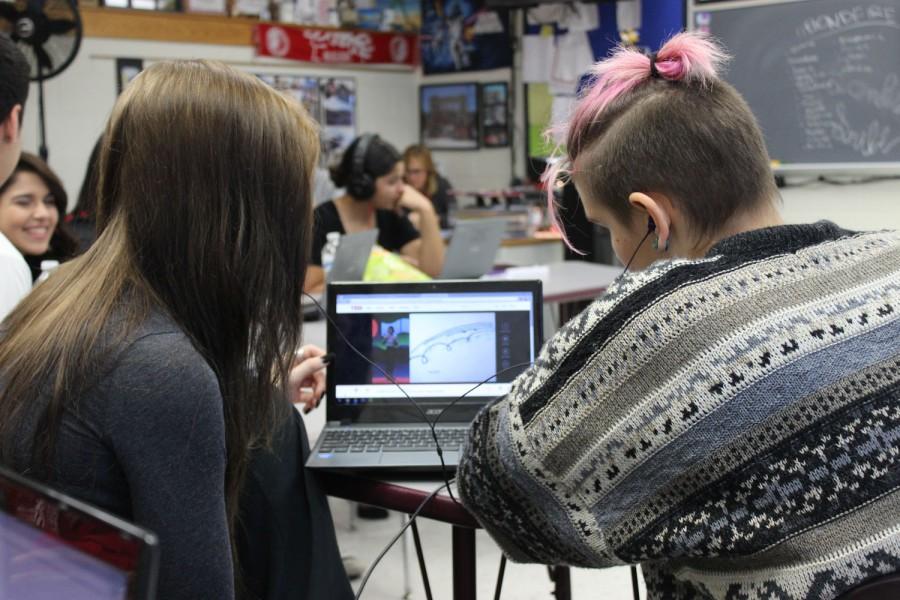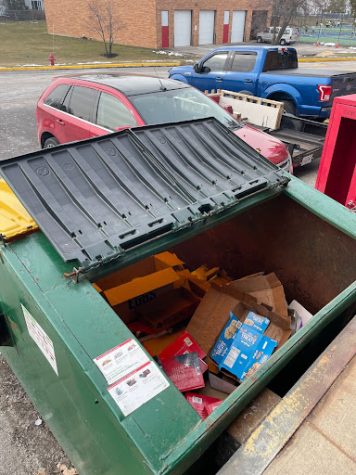Student, Staff Opinions on Year Two of Chromebook Use
November 10, 2015
Now that MHS is in its second year of distributing chromebooks to students for educational use during the school year, students and staff have developed strong opinions about these computers.
They are a “good resource in school,” said AJ Lentsch, freshman. “I can easily research things online, and it’s easier to write papers.”
He also said he uses various websites that help him to better understand the subjects he is taking.
Sophomore Lindsay Dickens had a similar opinion.
“They’re useful for a learning tool, but if we use them, we should get rid of textbooks and use them online.”
Dickens has found that the chromebook “takes up a lot of space” in the backpacks and is heavy when combined with textbooks. She said online textbooks would be best.
With the computer, there are “good websites to reference for help,” said Dickens.
Not only do the computers help the students with their work, they also help the teachers by allowing them to produce more interactive lessons.
“As a foreign language teacher, you can actually connect with classrooms around the world and collaborate with them,” said Brian Packowitz, Spanish teacher.
This enables students to “get outside the walls of the high school,” he said, and communicate with people around the world.
He also said, “They definitely cut down on the amount of paper,” offering an environmentally-friendly reason for the chromebooks.
Packowitz uses an online software called Canvas to help manage his classroom. Canvas allows teachers to post assignments online and also allows students to turn in their work through the website.
“It helps teachers incorporate 21st century skills into their teaching,” said Packowitz.
Other teachers commented on how much easier it is to plan lessons with chromebooks.
“In the past, teachers were limited to computer labs for students to use the internet or do word processing or use other programs,” said Chris Hoster, who teaches the Technology Support Internship, a class that allows students to explore and gain experience in technology services.
Now computer labs are no longer as in demand.
“If there is something quick that the teacher wants the student to do, they could just quickly use their chromebooks versus checking out an entire computer lab for a full period,” said Hoster.
While many find that the positives to having the chromebooks outweigh the negatives, teachers and students still have some difficulty with the device.
“My chromebook doesn’t always connect to my Wi-Fi at home, so on some occasions I can’t use it,” said Dickens. “I have to use my other computer.”
Also, when the chromebook malfunctions, then students are responsible for taking it to TSI for repairs.
“In terms of issues on our end, there haven’t been many,” said Hoster. “The most common issue that students have is that they have a cracked screen.”
If this happens, the students must pay a fee to get their broken part fixed. The price depends on what part needs fixing. TSI does not upcharge on the parts they get from Acer, nor do they charge labor fees.
Not every student has experienced difficulties.
“I haven’t had any chromebook problems,” said Lentsch, who is all for this technology.
Even if students have some problems, though, many are finding that these computers allow students to have a reliable educational tool for less money.
“They are less expensive than an iPad, and also you get a full keyboard,” said Hoster.
Even Dickens, who has had some problems with the chromebook, said, “The overall view of chromebooks is controversial, but their good qualities definitely outweigh their bad ones.”



